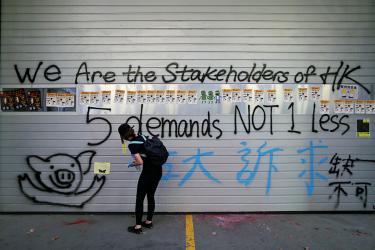National Police Agency Director-General Chen Ja-chin (陳家欽) yesterday vowed to conduct a strict investigation into an attack against Hong Kong singer, actor and democracy campaigner Denise Ho (何韻詩) on Sunday in Taipei.
|
|||
|
|
|||
| Page 437 of 1529 |
Newsflash
|
Air France yesterday resumed direct flights between Taipei and Paris. A ceremony was held at Taiwan Taoyuan International Airport to celebrate the restart of the direct flight service. |















